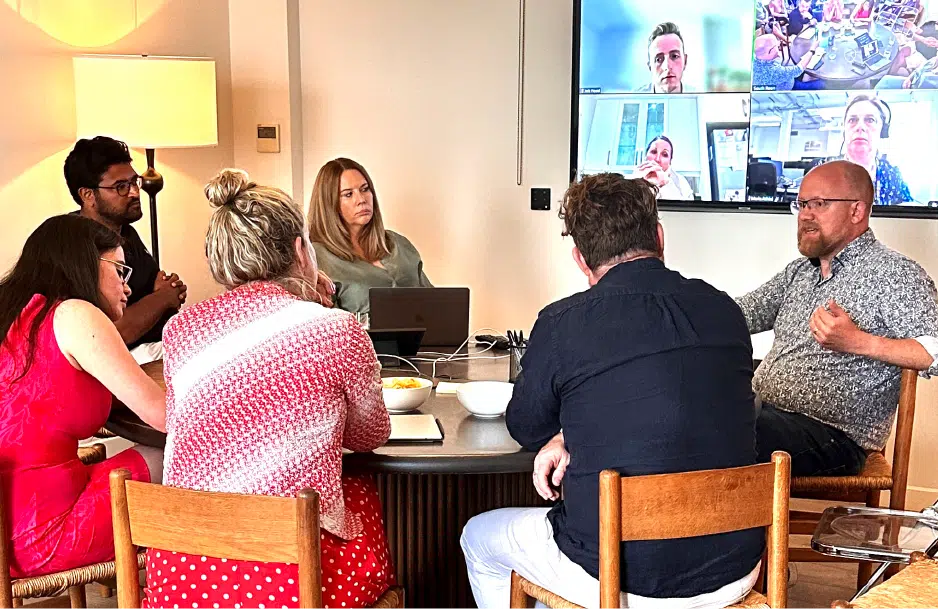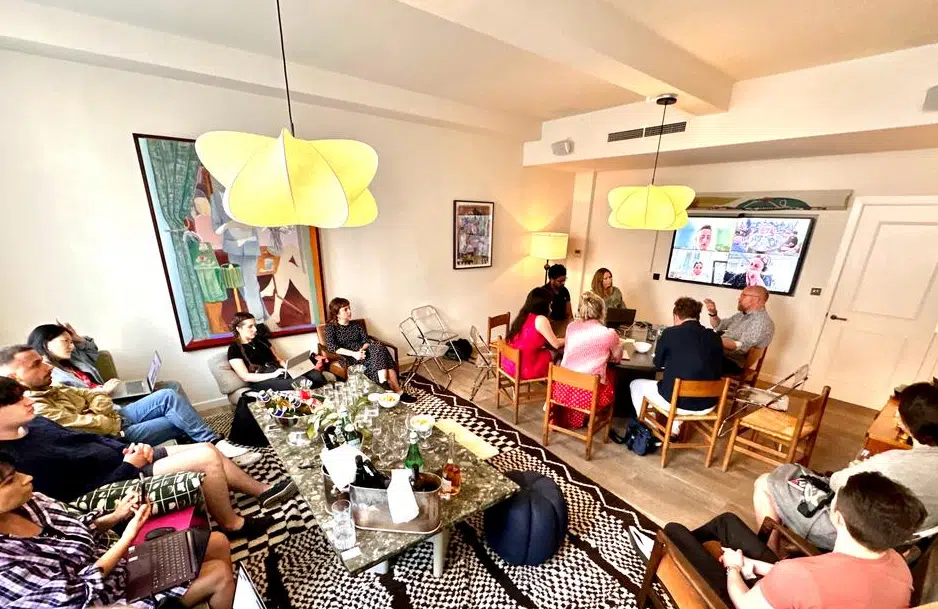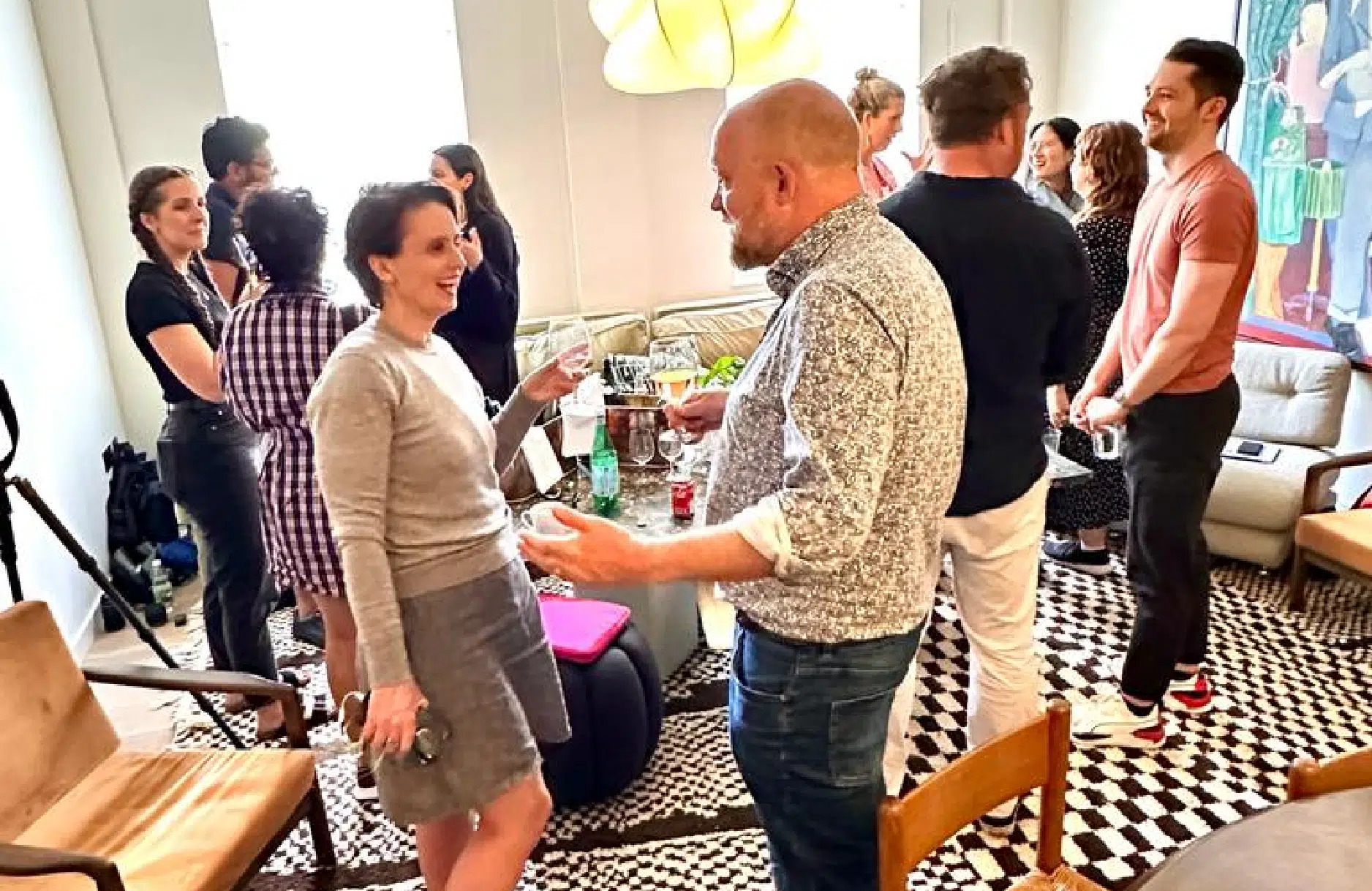AI + The lack of legalities
Our learnings from our fantastic thought-sharing workshop, first, let’s meet the experts:
Charlotte Johnson, Founder & CEO of Drew + Rose, is an avid fan of AI across every creative area, from copywriting to project management.
Akbar Ali, Founder of Ali Legal, is A corporate lawyer with in-depth knowledge of the global legalities, rules and regulations.
Stuart Helmer, of Counsel in the Intellectual Property team and head of the CMS London advertising and marketing group.
The time is now to consider ‘ownership’ and copyright. Who owns what?
The courts have for decades seen work created by a computer to be ‘owned’ by the creator; however, now the ‘creator’ could be AI, and AI is taking inspiration from what’s readily available on the web, protected or not. So, does AI own the copyright? The creator? and this is where the legal parameters are blurred.
This June, the vast giant Getty Images instructed the High Courts for an injunction against the equally massive Stability AI from selling their AI image-generated system. Read the article here.
Getty is worried and has the financial clout to follow up the copywriting. Still, it’s not just Getty that might take things further. Since 1988 all photographs have been afforded copyright protection under UK law, from the holiday snap to high art photography, but where do we draw the line?
Stuart believes that Getty has a strong case, given they own many of the images used by the platform Stability AI without Gettys consent (at a fee). The UK law clearly states that using copies of images to develop machine learning is breaking the law. It’ll be interesting to see how the case plays out and whether it opens the floodgates for other lawsuits, given that this is where AI against the law can come into its own, for example, if the image creator were to take the prompt directly from the image library description and re-create using AI, there is a clear paper trail of the actions and a conflict of Copywrite could be actioned.
A bold and confident move is from Adobe who announed that they will “guarantee against the consequences of litigation” with AI-generated content created via Adobe Firefly. Speaking at the Adobe Summit EMEA 2023 last week, Claude Alexandre, VP of digital media, said the business version of the image generation tool will include “full indemnification for the content created” as “a proof point that we stand behind the commercial safety and readiness of these features.”
Notably, the first company that has offered such a policy (yet to see the Terms & Conditions), who will follow suit?
Let’s move the conversation on to that of ‘people’ such as models and celebrities who haven’t given their consent and could be included in AI-generated images; where does the law sit on that: Put, if you have copied from a source and you do not hold the rights to or use an image of a person you have not gleaned the consent of, you are breaking the law. where did the image come from? Data protection is an area in which protects your image, and when it’s used without your consent, you are breaching the data protection law.
Stuart advised, “I would counsel against using images of celebrities or AI-generated images that look like someone.”
Akbar encourages us to “See Chat GPT as a resource, a tool, take what you need but do ensure you carry out your due diligence of fact-checking.”
UK government is taking a light touch approach looking at sector regulators and keeping it very simple, and the UK is taking a different approach to AI growth. In contrast, the EU has made a specific exception for research about AI. The government here still needs to have that clause but watch this space.
The backlash against AI is a debating starting point which brings about the technological arms race against being ‘scrapped’ or not, for example, the Glaze app. which artists are starting to implement where it confuses the AI, read the article here, altering your artwork to confuse AI to ensure the protection of your artwork.
Stuart clarifies, “Deep Fakes in the EU have to be disclosed/stated. I don’t think AI-generated images are far away from disclosure too”
In essence, the AI technology landscape is growing, adapting and evolving rapidly. Please reach out if you’d like an ‘up-to-date’ presentation from the team here. Only too happy to help.




